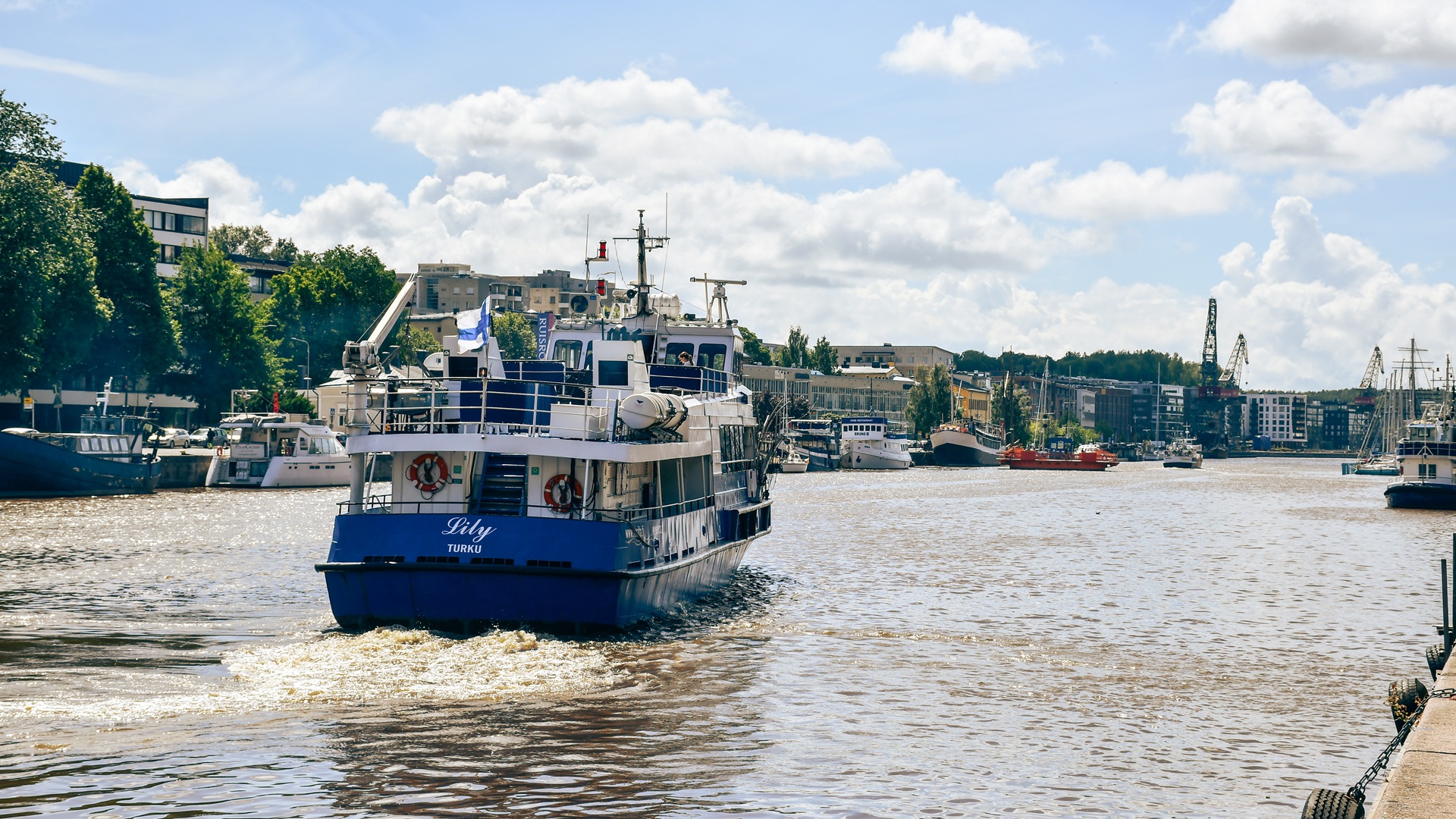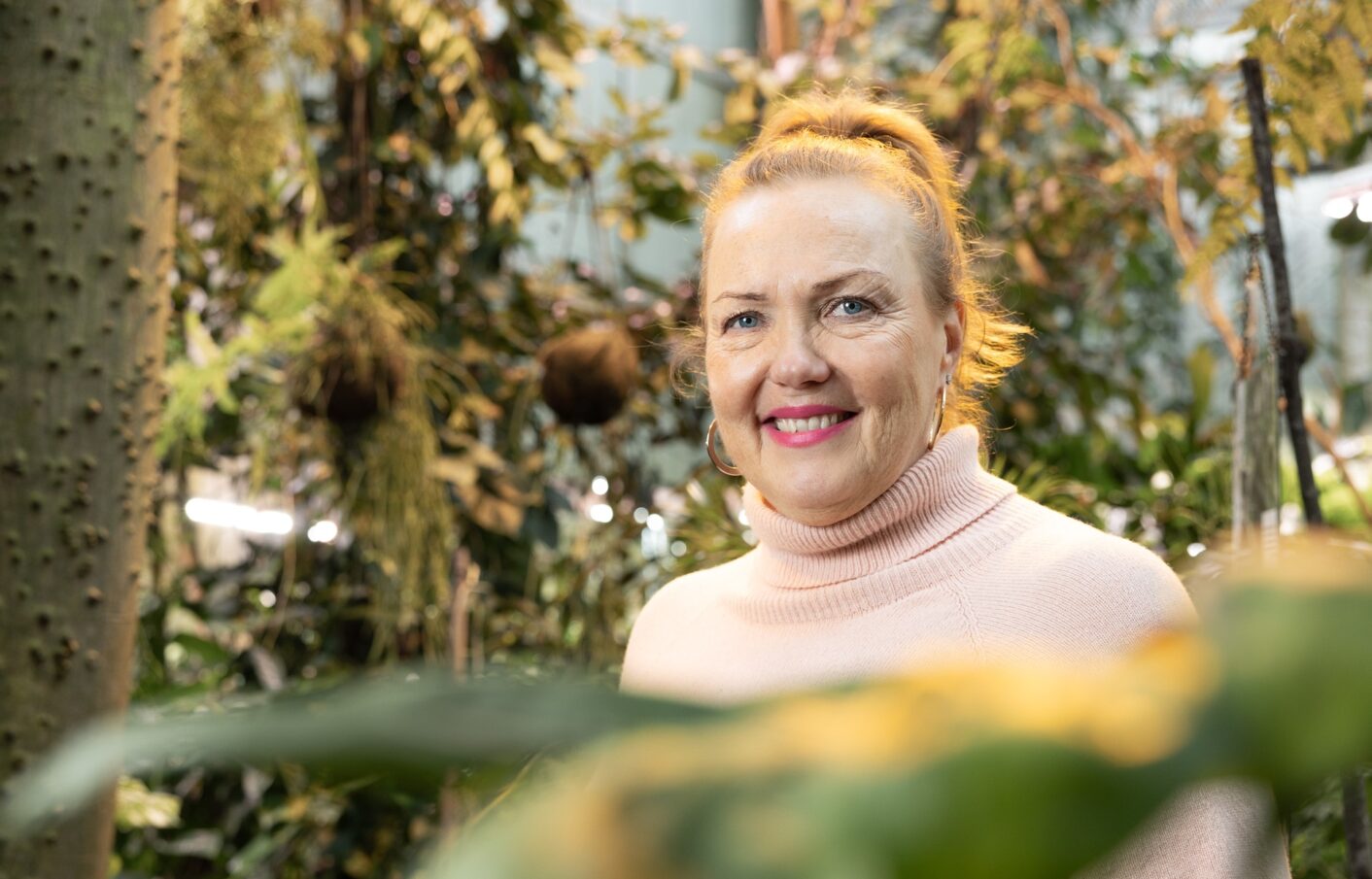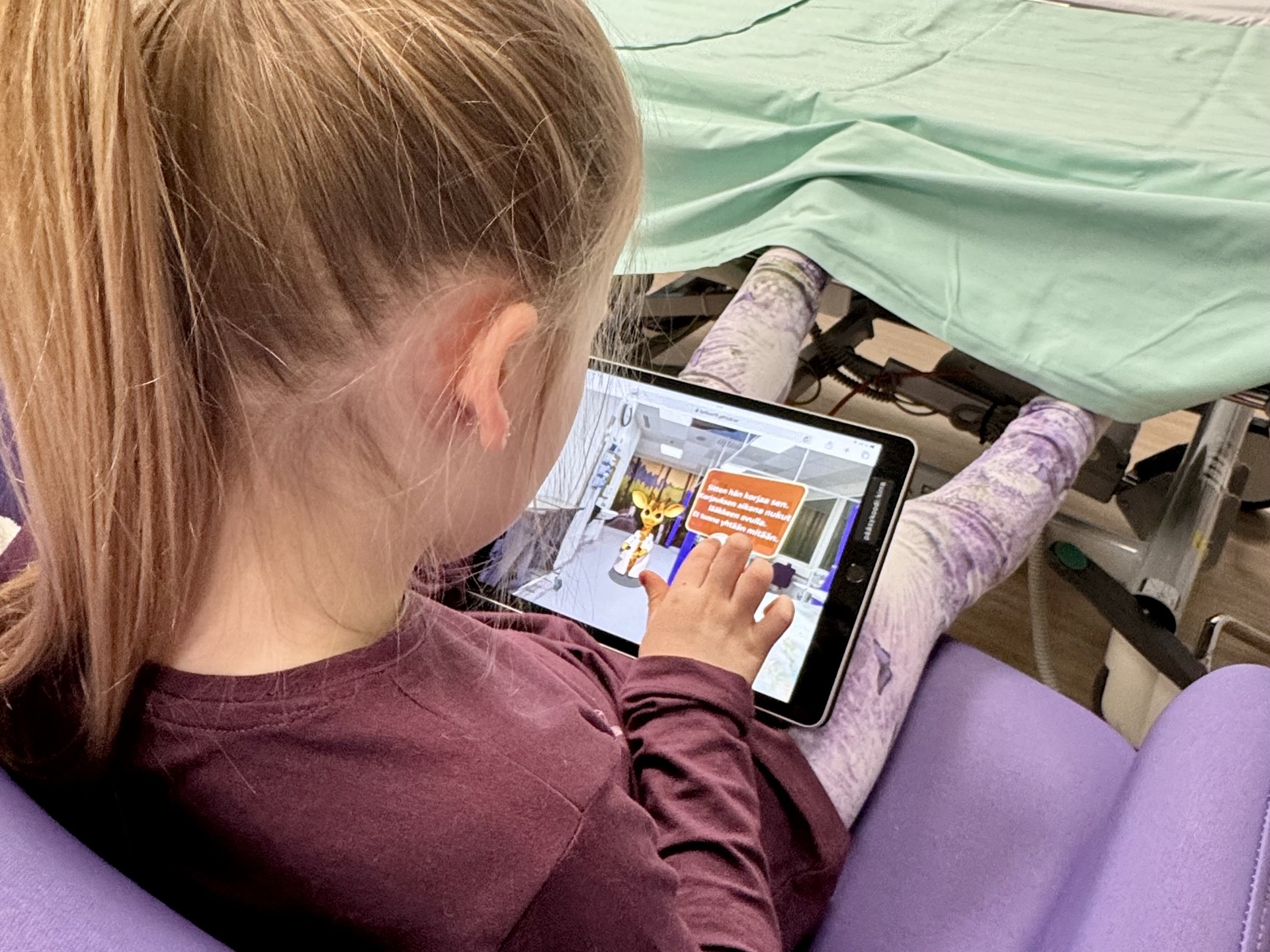The tourism industry is returning to growth after the covid slump. Among the various tourism genres, wellness tourism is growing particularly strongly. Lecturer Susanna Saari explores the potential of urban wellness tourism.

Published:
Edited:
Text by Martti Komulainen
Photos by City of Turku / Henri Taponen and Martti Komulainen
– Wellness is becoming an established term and synonym for wellbeing, although it was initially frowned upon and associated with luxury tourism and fitness, rather than the more holistic mind-body wellness that it is now seen as. Luxury is a very subjective thing, and for many people, nature itself is luxury, defines Senior Lecturer Susanna Saari.
– Wellness tourism is tourism where people consciously and proactively seek things that promote their well-being. Wellness tourism is associated with the concept of holistic well-being, ‘mind, body and spirit’. In addition, it is now strongly associated with responsibility.
Susanna Saari, a Senior Lecturer in Tourism and Wellness as Business Studies at Turku University of Applied Sciences, is particularly interested in urban wellness tourism and is working on her doctoral thesis at the University of Lapland.
– Covid was a pause to rethink the future direction of tourism. In a performance-driven life, people want to invest in their wellbeing in their leisure time. In the competition between tourist destinations, wellness tourism products can be a competitive asset, even in cities where the population and tourism are concentrated,” believes Susanna Saari.
“Master of Joutenolo”
Susanna Saari’s journey as a wellness tourism expert has been a multi-polar one. The background includes work in the hotel and restaurant industry, a degree in hotel and restaurant management, a degree in restaurant management and a Master’s degree in “joutenolo” (leisure and recreation services) from the University of Joensuu (now the University of Eastern Finland).
So now I have a doctoral thesis on urban well-being tourism that is almost ready to be finalised. In it, Susanna Saari examines urban tourism from three perspectives: the DMO (destination management organisations), the tourism industry, the motivation of wellbeing tourists and the wellbeing of local residents. The aim is to create a model of urban wellness tourism that takes into account holistic well-being.
Wellness tourism draws on nature and culture
Traditional Finnish wellness, Finrelax, is strongly associated with nature, sauna, traditional treatments, experiencing silence, simple and rooted experiences in a traditional cottage. Susanna Saari wants to broaden the Finnish definition of wellness tourism. Wellness tourism can draw not only from nature but also from culture.
Even in the most urbanised environment, there is a lot of potential for tourism to bring prosperity. A city break can be a source of wellbeing for the traveller, for example, with quality accommodation, a day of touring museums and an evening at the theatre. In between, a good choice of local food and drink experiences. Or an energetic weekend of sport, staying in a spa hotel, sleeping well and enjoying the company of friends or family, including at the dinner table.
Coolcation a future tourism trend in Finland?
Southern and central Europe and many other parts of the world are suffering from hurricanes. Finland is also experiencing heatwaves, but not as severe as further south. Could a cooler climate be an asset for tourism? Yes, it could and already is. There is talk of ‘coolcation’ tourism, seeking relief from the heatwave.
Other possible future trends in wellness tourism include the inclusion of children in wellness tourism, wellness travel for men in the form of sports camps and nature walks, the well-being of an ageing population and the application of health technology in tourism.

In the competition between tourist destinations, wellness tourism products can also be a competitive asset in cities.
Senior Lecturer Susanna Saari is interested in urban wellness tourism and is working on a PhD thesis on the subject.
The quest for sustainability remains in tourism, even in regenerative tourism. Finland aims to be the most sustainable tourism country in 2030. Tourism service providers will need to focus on issues such as obtaining the appropriate environmental certification for their operations, undergoing training on Visit Finland’s seven-step Sustainable Travel Finland label and starting to communicate sustainability to customers.
– I feel a little pain myself, teaching and researching the tourism industry, which causes emissions through air travel, among other things, Susanna Saari laments.
Young people are also interested in wellness tourism as a field of study and employment. Business studies in tourism and wellness services as part of business studies have a strong appeal and the number of applicants in Turku is at a good level. Similar training is not available elsewhere in southern Finland.
Wellness tourism development projects
Although the research and development projects are currently in a quieter phase, the first wellness tourism research projects were launched at Turku University of Applied Sciences in 2007 on spa tourism. Over the years, there has been the development of wellness destinations in Europe, the development of a cycling network, the commercialisation of the Finnish lifestyle in tourism and much more.
Turku University of Applied Sciences is also a member of the Nordic sustainable tourism network Tour Nord, which has just published a new compendium “Nordic Coastal Tourism”. In addition, this cooperation has already resulted in educational cooperation.
Read and ask more
The article is published in Talk Magazine 2025: Good Life (in Finnish).
Read next
-
Press Release

Turku UAS launches StartLab to make students’ business ideas come true
Turku University of Applied Sciences will offer mentoring for all its students to develop their own business ideas. A StartLab will be established where students can go for…
-
Press Release

New app to help children prepare for hospital visits
An international project led by Turku University of Applied Sciences developed an app that allows children and their families to virtually visit a hospital and learn about the…
-
Case

Knowledge for well-being and performance
The cooperation between Eerikkilä and Turku University of Applied Sciences is expanding from sports and exercise technology to more general knowledge-based management of well-being and performance. Performance and…

